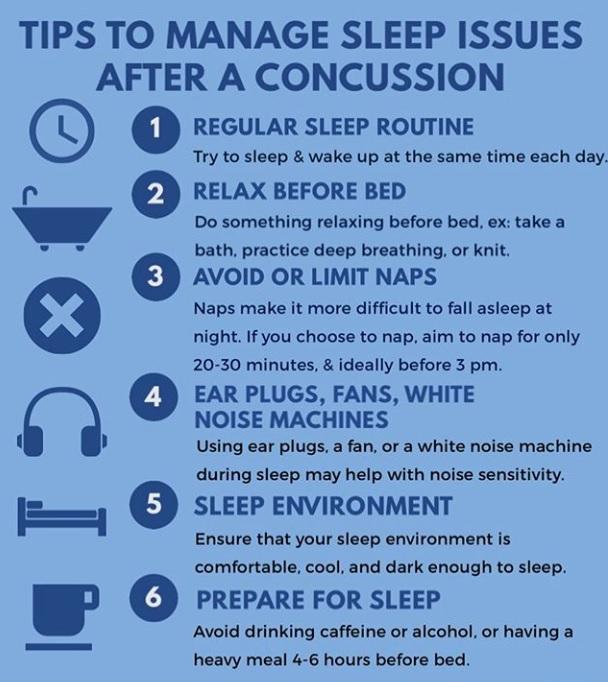6 Tips for Managing Sleep Issues After a Concussion

A huge part of managing sleep involves working on developing a consistent sleep schedule (i.e. sleeping and waking around the same time each day). If you have trouble falling asleep at night, then getting in the routine of doing something relaxing before bed can help (e.g. reading or listening to an audiobook or podcast or soothing music, taking a warm bath, meditating or deep breathing, knitting, doing puzzles, etc.).
It can also help to avoid naps and substances that might interfere with sleep (e.g. caffeine or alcohol). If you feel the need to nap, try to limit your naps to 20-30 minutes long, and ideally nap before 3:00 pm only. Also try to limit this to one nap per day. Naps can make it harder to fall asleep at night, so these tips will help you to still fall asleep at a reasonable time. If you choose to have caffeine, alcohol, or even a heavy meal at night, try to do so at least 4-6 hours before bed to prevent difficulty sleeping or waking up throughout the night.
Your sleep environment is important too. Cold-temperature environments can help you sleep. The amount of light in the room is important too - ensure that your room is dark enough to promote sleep (vs. wakefulness). Getting enough light during the day is important too. Make the sleep environment as comfortable as possible, this may include getting a fan or white noise machine to help with noise sensitivity or tinnitus. Ear plugs may help with noise sensitivity as well. Keep electronics out of the bedroom or turn sound notification off.
From Instagram - @ConcussionMTL and www.SunnyBrook.CA

